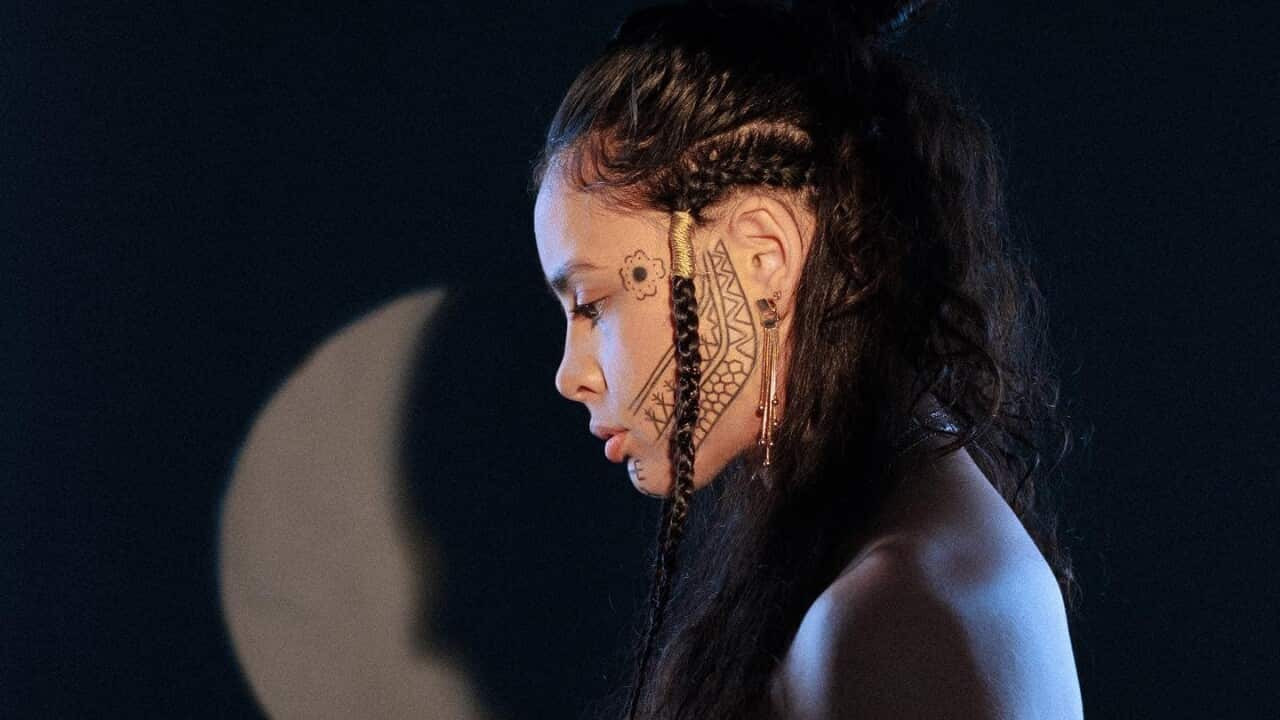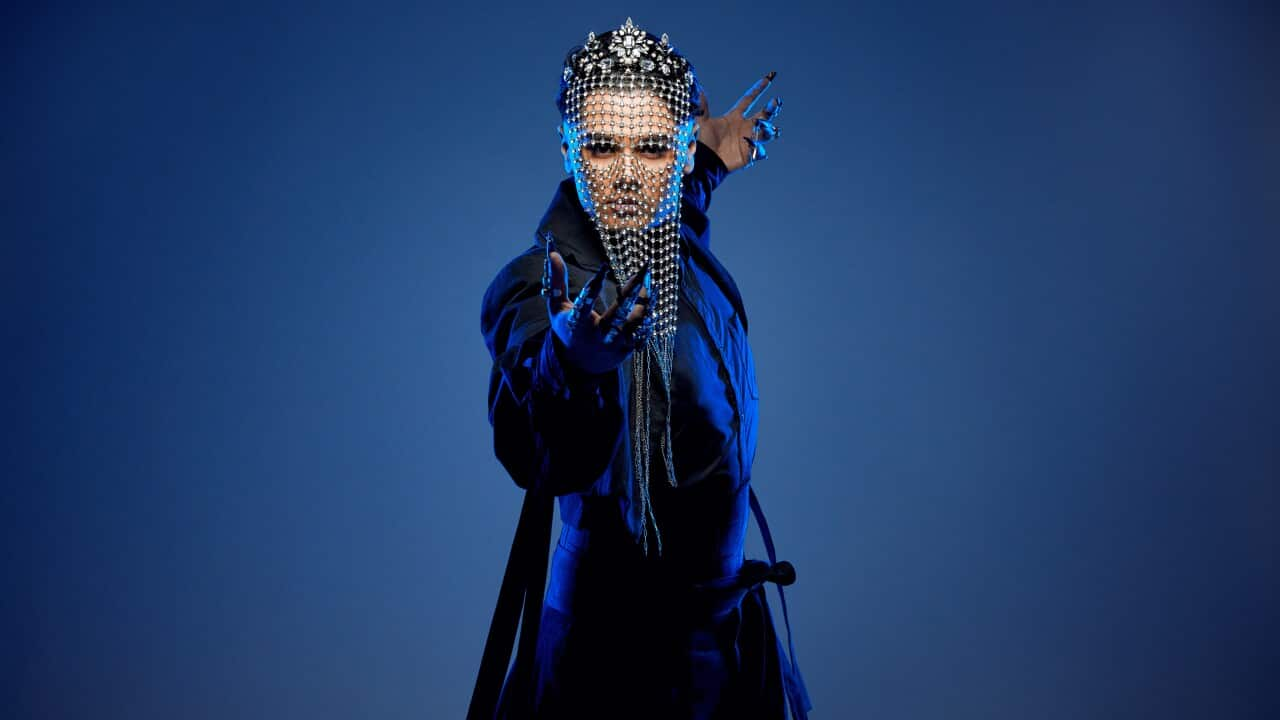Key Points
- Bernie Van Tiel is a beatboxer, producer, recording artist and voice-over actor.
- She says she doesn't have a coming out story. She was outed.
- Her work is all about leaning into her roots and reclaiming spaces.
Listen to the interview

Gaano kahirap ang pagsisiwalat ng kasarian sa lipunan?
SBS Filipino
11/10/202207:00
Beatboxer. Hip-hop and R&B artist. Producer. Voice-over actor.
In as much as Bernie Van Tiel (aka BVT) is a multi-hyphenated artist, she goes through life as a multi-hyphenated minority.
The queer POC
Van Tiel had spent some of her childhood in her mother's native Pampanga, but the majority of her formative years were entrenched in contending with the predominantly white, straight-laced rural town of Murwillumbah.
"People could be narrow-minded and, obviously racism was part of that. Oftentimes, it wasn't intentional; but there would be times that it would be very, very intentional.
"What was more impacting was the type of racism where people didn't know they were being racist. They were just taught to think and feel that way. They didn't know what impact it had on someone and, they carried that with them when they grew up."

A young Bernie Van Tiel Credit: Bernie Van Tiel
"I think a lot of my work comes from my experiences growing up in a a small, white country town as a little biracial, brown girl.
"I saw the impact that had on my family migrating to Australia and trying to get their lives to work, knowing full well that they have to work the rest of their lives just to make things happen and get by."

"I think a lot of my work comes from my experiences growing up in a a small, white country town as a little biracial, brown girl." Credit: Bernie Van Tiel
"I didn’t get a coming out story. I was outed. Again, a nice little byproduct of being in the town is that everybody knew everybody’s business. As soon as someone took issue about something that went against the grain or the norm, I didn't really get a choice on how they perceived me.
"I was outed and so was my partner at that time. Unfortunately, that put us in a bit of danger and ostracised us a lot from our friends and community."
Van Tiel admits that the dangers, ostracisation and constant need to 'perform' continue to be exhausting.
"All you want to do is love and you don’t get to.
"It’s like being in a human zoo sometimes. Imagine constantly performing 24/7 because people are looking at you; then the moment you relax and be yourself, they have a problem with it, so you have to put on that performance again for them."
Van Tiel admits that moving in the world as a queer person of colour [POC] automatically carries a contrast.
"You're seen as different. You move different. You talk different. You act different. You love different. And everyone wants to scrutinise it, fetishise it, put it on a pedestal and, take it off that pedestal. They don’t know what to do with you. They flip you over, turn you over."
Van Tiel shares that oftentimes, the prejudices and preconceptions come from a place of ignorance.
"It’s not my position to educate you. Go do your own research and find out yourself why this experience is so different for us and, why entitlement and privilege are things that we have to interact with differently."
The female beatboxer
Discovering beatboxing at 12 years old, Van Tiel saw the craft as her way out of the limits of her small town.
She saw the opportunities that led to her life in Sydney as circumstantial, and her talents as obsessions that came to fruition.
"I was just very lucky to have been at the right place at the right time."
Although she was at the right place at the right time, she admits that permeating the beatboxing scene continues to be tricky.
"In the beatboxing world, its funny...Everyone wants to welcome everyone, but I feel like they don’t realise they need to open space.
"It's male-dominated and male-founded, so it's coming from men accommodating space for women. That's great, but you also want to listen to what women want. Put women in charge so they get what they need.
"For me in the industry, I'm not just a woman. I'm a POC and queer so I'm deeply marginalised.
"I'm fighting a battle shared by so many people. There's this constant anxiety as to whether or not the way we move, speak or act will affect the next job we book or the next opportunity we get."
Van Tiel admits that the issue of gender inequality is still a pervasive conversation that needs to be had.
"It's not just being a female in the industry, it's being female in life.
"You look at everything - pay, privilege...We have to be more assertive but, also not cross that thin line of not being bossy. We’re taught to edit ourselves."
The agitator
Although admittedly exhausted, Van Tiel isn't giving up the fight.
"A lot of the work I do is deconstructing and pulling [those perceptions] apart. It's about decolonising ourselves and our culture, reclaiming those spaces."
Van Tiel seeks to further create music and art that put emphasis on not only her Filipino roots, but her queer, female and POC identity.
Acknowledging those who came before her, she says that it's important for today's Filipino "to bear culture as a future ancestor."
But while Van Tiel acknowledges the past and its foundations, she recognises the need to put a chisel and hammer to those that discriminate and no longer work.
"It's naive to think that I alone can make this change.
"We try to do as much damage to that foundation. The more people who do that and the more we influence people to do that, the more that foundation will crumble.
"But we need to think about the new foundation we want to build and how we want that to look. We forget that part.
"We all think we need to fight for space and that creates the same cycle of pushing people out and putting someone else on top. We need to figure out how to gain that equality."








